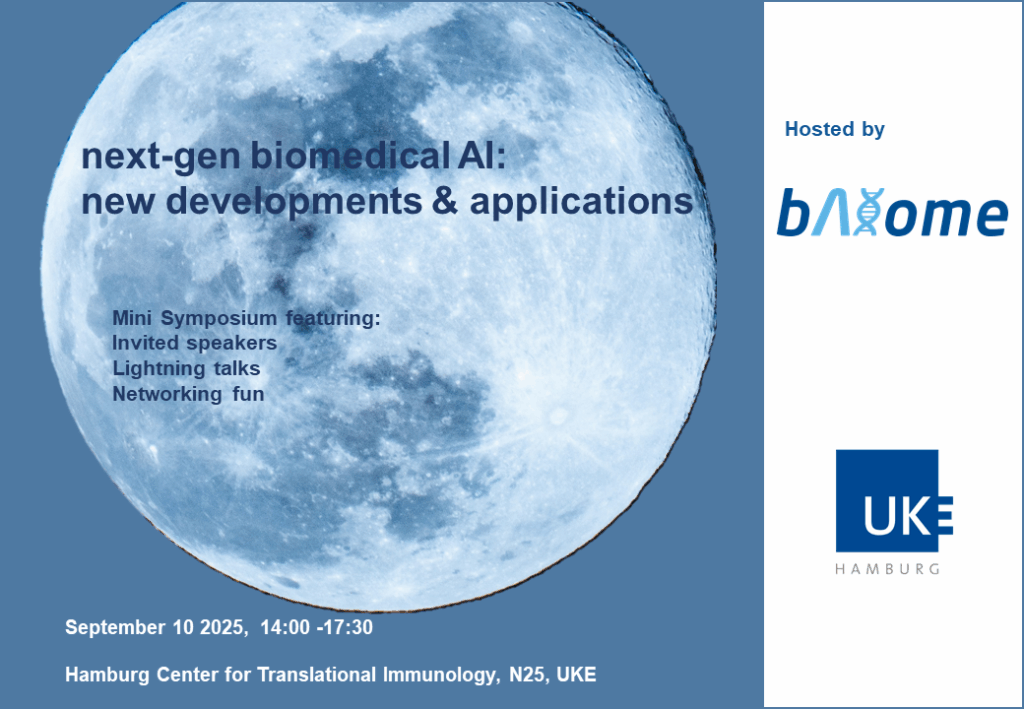
Mini Symposium: next-gen biomedical AI- new developments & applications (Sept 2025)
Date: 10th September 2025, Time: 14:00-17:30
Location: Large seminar room 0.02 & foyer, Hamburg Center for Translational Immunology (HCTI), Building N25, UKE
Description: Whether you have a background in computer science, or biomedical-related fields, this Mini Symposium is designed to be very inclusive for students, researchers, and clinicians working and/or interested in biomedical artificial intelligence (AI). Our invited speakers will provide engaging presentations that introduce core ideas in AI and demonstrate how they are being applied to solve challenges in biomedicine. There will be opportunities for short lightning talks, Q&A, and networking, all in a fun and relaxed atmosphere with drinks and snacks provided. The ultimate goal is to raise awareness and foster new interactions at the forefront of biomedical AI in Hamburg. Please register for this event below.
Invited speakers Fabian Kern (UHH) and Fatemeh Haedaghi (UKE) will give talks on new developments in their research. See titles and abstracts below.
Lightning talks: Interested in giving a short talk about your current research? Let us know in your registration. There will be a number of short talks from selected topics to give exciting impulses of cutting-edge science as well as plenty of time and encouragement of audience participation.
Topics of interest:
- Application of AI in diagnostics (omics, pathology, radiology)
- Predictive modeling for patient outcomes
- Drug discovery and personalized medicine
- Foundation models in biomedicine
- Federated learning and data privacy in biomedicine
- Explainable AI and model interpretability
Registration for this event has closed.

Prof. Dr. Fabian Kern
Prof. Dr. Fabian Kern, Center for Bioinformatics, University of Hamburg
Let’s go hybrid: Why we should care to rewire our models with approaches from neuro-symbolic AI
Abstract: Complex deep learning architectures have made sustainable impact on how we analyze high-dimensional data sets in the life sciences and biomedical domains. However, most models are still blind to our growing global body of knowledge and evidence on the mechanics of biological systems, and thus fail to generalise (or reason) for new context. We will discuss how notable enhancements in this direction can be achieved using ideas from neuro-symbolic AI to make health-care related applications more resilient and therefore also more realistic.

Dr. Fatemeh Hadaeghi
Dr. Fatemeh Haedaghi, Institute for Computational Neuroscience, UKE
NeuroAI methods in health monitoring
Abstract: This talk will explore the development of biologically inspired, lightweight neural architectures tailored for personalized health prediction and recovery monitoring. The focus will be on modeling dynamic health state transitions, such as from wellness to illness (for example, relapse or deterioration) and from illness to recovery, highlighting how NeuroAI methods can provide interpretable and adaptive solutions for real-time health tracking.


Stay In Touch